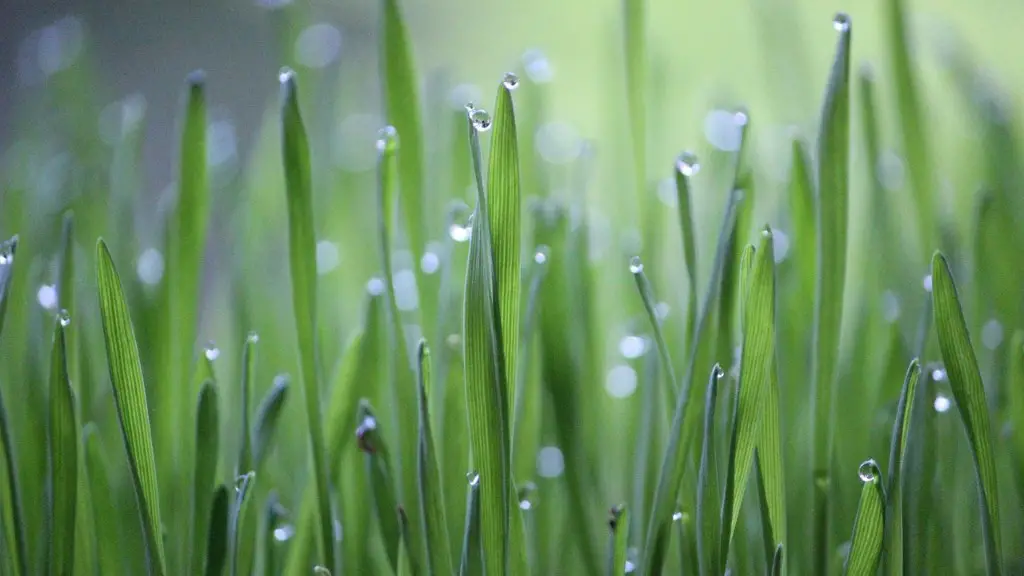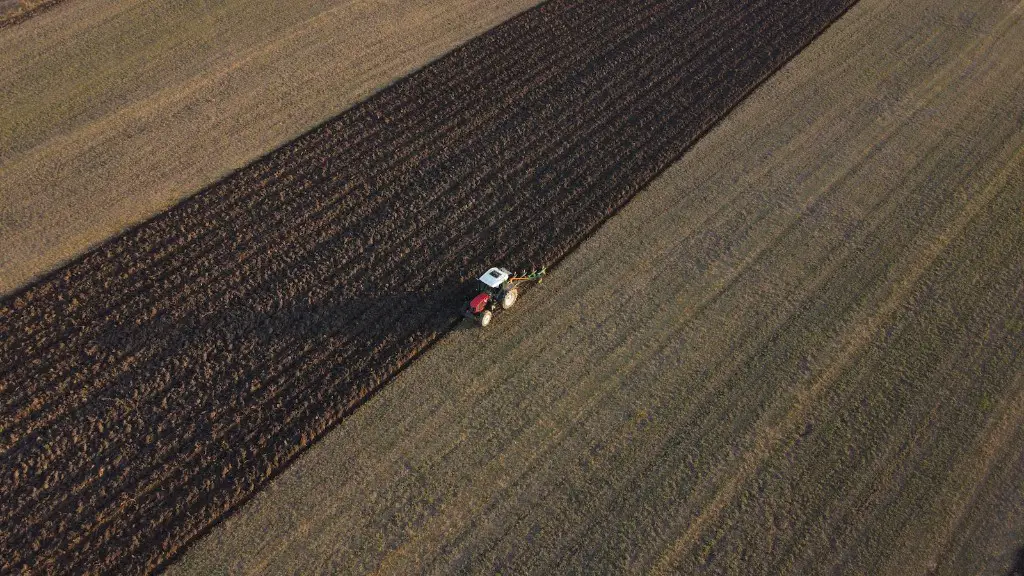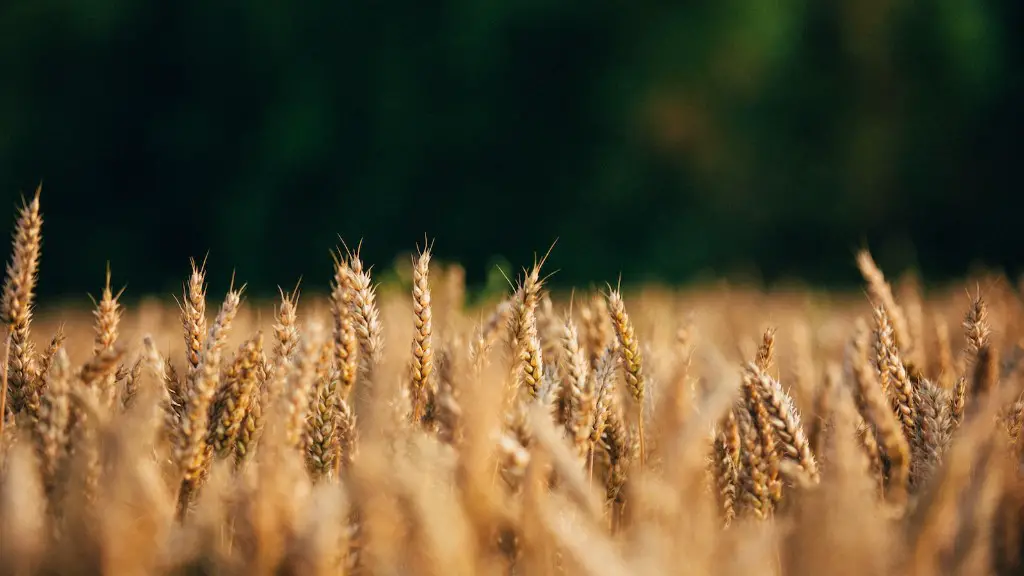The use of pesticides in agriculture can be dated back as far as 3200 BCE. Before that, farmers relied mostly on natural means of pest control such as traps and natural predators to protect their crops from damage. It was in the early 18th century where the first recorded use of pesticide sprays were used to protect crops. This is evidenced by the records of English agriculturalist J.A. Rackham, who developed a spray that contained artificial mixtures of sodium arsenite and vegetable oil, in 1720.
By the 19th century, advances in chemistry had allowed for the development of more effective pesticides such as arsenic-based compounds, sulfur compounds, and pyrethrum, which replaced the use of soaps and natural sources of pest control. By the middle of the 19th century, companies had started to manufacture and distribute modern insecticides such as lead arsenate, gibberellic acid, ethyl mercuric chloride, and tin chlorinate.
In the early 20th century, the first use of synthetic organic insecticides began with the introduction of DDT. This chemical was hailed as a modern day miracle but over time its environmental effects became too severe and it was banned in many countries. Over the last few decades, new chemicals have been developed to replace DDT, such as organophosphates, pyrethroids, and neonicotinoids.
In addition to insecticides, herbicides have also been used in agriculture for the control of weeds since the mid-20th century. The most widely used herbicides are glyphosate-based products such as Roundup, as well as paraquat, which is mainly utilized in fruit crop production.
Even though modern pesticide use has been a highly successful and safe way of controlling pests, it does come with certain risks and drawbacks. The overuse of pesticides can cause adverse effects on human health and the environment, such as water pollution and the creation of pesticide-resistant pests. As such, it is important to keep in mind the risks associated with pesticide use and only use them when necessary.
Overall, the use of pesticides in agriculture has significantly increased since its first recorded use centuries ago. Even though there are drawbacks to its use, it has been highly successful when used in moderation.
Evolving Regulations
The use of pesticides and other agricultural chemicals is closely regulated by government agencies around the world. In the United States, the Environmental Protection Agency (EPA) is the main body responsible for regulating the use of pesticides by farmers. The EPA sets standards for pesticide use based on yearly reviews of scientific data and evidence. To ensure safety, pesticides must also be registered with the EPA before they can be sold and used.
Aside from setting standards, the EPA also develops and implements a variety of strategies to protect human health and the environment from potential pesticide exposure. These strategies include research on the potential impacts of pesticides, educational and outreach initiatives, and monitoring and enforcement activities.
In addition to the EPA, other government agencies such as the US Department of Agriculture (USDA) also have regulations in place for pesticide use. The USDA sets standards for the labeling of pesticide products, as well as for the promotion of sustainable alternatives to chemical pesticides.
Overall, the regulation of pesticide use in the United States has evolved over the years, from an emphasis on the regulation of chemical pesticides to a focus on the promotion of more sustainable alternatives. As a result, pesticide use in the US has been reduced significantly, and new regulations are constantly being developed to further reduce the potential for adverse effects.
Impacts on Human Health
The use of pesticides and other agricultural chemicals can have significant impacts on human health. These chemicals are designed to kill a wide range of organisms, including beneficial ones, and as a result can affect human health if they are not used correctly. One of the most common health problems caused by pesticide exposure is acute toxicity, which can result in nausea, headaches, and respiratory symptoms in humans.
Long-term exposure to pesticides can also lead to illnesses such as cancer, neurological disorders, and reproductive problems. The effects of long-term exposure may take years to manifest and can be difficult to recognize, making it even more important to minimize pesticide exposure whenever possible.
To reduce the potential for adverse health effects, it is important to use caution when handling and applying pesticides. Care must be taken to ensure that only authorized products are used, in accordance with their labels. To further minimize the risk, protective clothing and equipment should always be worn when applying pesticides, and all safety guidelines should be followed.
Lastly, it is important to remember that pesticide use is regulated by the EPA and other government agencies, and any violations can result in serious consequences. It is best to consult with a professional or seek advice from local experts before using any pesticides to ensure that they are used properly and in accordance with regulations.
Effects on the Environment
Pesticide use can also have adverse environmental impacts if they are not used responsibly. Pesticides can leach into the soil and contaminate water supplies, leading to long-term damage to aquatic ecosystems. In addition, the use of pesticides can contribute to the decline of beneficial insect and wildlife populations.
The use of pesticides can also lead to the development of pesticide-resistant insects and weeds. This is due to their ability to adapt and survive the toxic effects of these chemicals, making them particularly difficult to control. This can lead to the need for stronger and more toxic chemicals, which in turn can further damage the environment.
To reduce the environmental impacts of pesticide use, it is important to only use pesticides when necessary and follow all of the recommended safety and application guidelines. Other alternatives to chemical pesticides should also be utilized whenever possible, such as applying natural sources of pest control, using traps, and rotating crops.
To further reduce potential environmental impacts, it is important to dispose of unused or expired pesticides properly, following all recommended guidelines. Additionally, it is important to properly store pesticides away from children, pets, and the environment to reduce the risk of accidental exposure.
The Future of Pesticides
As awareness of the potential environmental and health impacts of pesticide use continues to rise, the focus is shifting towards the development of more sustainable alternatives. New technologies such as genetic modification and biopesticides are being explored as possible pest control options, which can provide more effective and safer alternatives to chemical pesticides.
Modern farming practices are also being adapted to reduce the need for chemical pesticides. For example, crop rotation and integrated pest management strategies are being implemented to minimize the need for chemical pesticides in some regions. Additionally, the use of more resilient crop varieties has been shown to reduce the need for chemical pesticides in some areas.
Overall, the future of pesticides appears to be shifting away from the over-reliance on chemical options and towards more sustainable alternatives. With the development of new technologies, regulations, and practices, farmers will be able to reduce their dependence on chemical pesticides and instead rely on more sustainable methods of pest control.
Organic Pesticides
Organic pesticides are an emerging option for those seeking a more sustainable alternative to traditional chemical pesticides. These pesticides are derived from natural sources, such as plants, animals, or microorganisms, and are generally much less toxic than their chemical counterparts.
Organic pesticides are increasingly being used in organic farming systems, mainly due to their lower risk of environmental and health impacts. In addition, they are often more specific to their targets than chemical pesticides, meaning that they can be used to target specific pests without causing harm to beneficial insects and wildlife.
Organic pesticides are still subject to the same regulations as chemical pesticides and must be approved by the EPA before they can be used. It is important to note that organic pesticides can still have adverse effects if they are not used properly, so farmers should always consult with professionals and experts before using them in their operations.
Organic pesticides provide an effective and safe option for controlling pests in agriculture, and their use is expected to continue to rise in the coming years. This shift away from chemical pesticides towards organic options will ultimately result in more sustainable pest control practices, and benefit both farmers and the environment.





